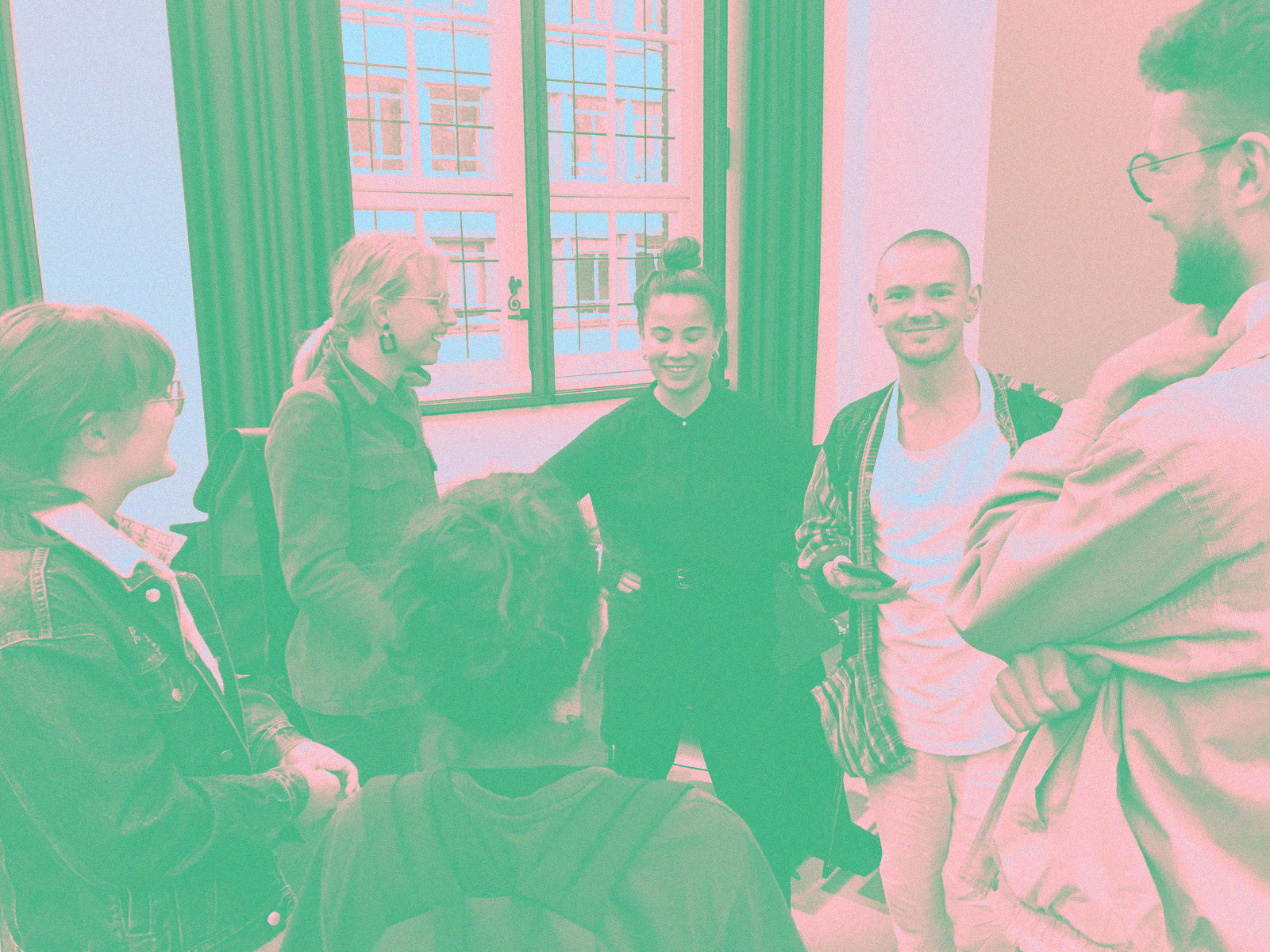GABIJA BUBNYTĖ

As a fifth-year Dual Degree student, who is also enrolled in the minor this year, GABIJA is a familiar face in the RASL community. She combines Graphic Design at Willem de Kooning Academy (WdKA) with her studies in International Relations and Politics at Erasmus University College (EUC). GABIJA is especially passionate about engaging with social issues and developing ways to visualize them through her projects and practices.
How has this form of education influenced your perspective on your future practice? And which opportunities does this way of studying give you?
![]()
What made you choose the Dual Degree?
When I came to the Netherlands and began considering different schools, I first chose to study Graphic Design. But once I was accepted at WdKA, I saw the Dual Degree. I'd always been very engaged with academics and wanted to continue in that world as well, but until then, I hadn’t been able to see how that would fit with my artistic interests. The Dual Degree enables me to combine these, so I took this opportunity.
How would you say the arts and sciences reinforce each other?
I think it becomes really visible when working on social issues. In order to engage with those issues, you need a way to make them visible; you need a bottom-up approach and a way of communicating with people. This you can do with graphic design. At the same time, you need academic insights for a better understanding of what you’re engaging with.
Could you give an example of a social issue you have engaged with in your practice and in which you see this combination of the arts and sciences?
Yes, last year at WdKA we did a project called Performative Action. In this project, we worked with Pension Almonde, an organisation which challenged a building company that wanted to create lofts in a street where people were evicted from their homes. We were able to learn from the community there, had our classes in the street and thought of different ways in which we could contribute. My courses at EUC helped me see how what I learned about social issues was reflected on that street. This project enabled us to move beyond the comfortable world of theory and actually do something practical and see what we could contribute.
What makes you, as a Dual Degree student, different from other students at your institutions?
I really see both worlds coming together. In the academic world, everyone is very engaged with social issues from a theoretical point of view. The topics that we discuss in philosophy and social sciences at EUC, I find them very interesting. But because I also study graphic design, this allows me to engage in a more practical sense and also to start thinking about social issues from the ground-up. So, I try to step away from theory and to find solutions. I think everyone is capable of that, but maybe I’m just more aware of this because I have both the theoretical background and the practice, so I can see how these aspects complement each other.
How has this form of education influenced your perspective on your future practice? And which opportunities does this way of studying give you?
I think it is important to always come back to a practice across different disciplines. Through the Dual Degree and the RASL minor, I feel like I have gained a broad set of skills that I can bring to anything I want to do. It has made me very engaged with education in general, and I really want to continue studying because I see the value of bridging the arts and sciences. I feel very blessed with my studies because I know that not everyone can find something that they're so passionate about.
Did the Dual Degree enable you to build an informal network across the different institutions?
Yes! I think because we are the first batch to graduate from RASL, we received quite a bit of attention. At EUC, I was known as the RASL student, so I could be approached by tutors and students for projects or internships. And another example of this network that is created through RASL is an event we organized a few years ago at Museum Boijmans van Beuningen together with RASL students and students from Erasmus MC, the medical university. It was called The Art of Seeing. We brought medical students and art students to Boijmans to look at art together and see what we could all learn from our different perspectives.
What could be the next step for the Dual Degree and RASL?
I really wish this way of studying was more mainstream. And if I could ever do that in the future, I would also like to help set up a similar programme in Lithuania, my home country. I think everyone should be able to engage with both the arts and the sciences. If you talk to people graduating from high school right now, so many of them are interested in working and studying across disciplines, but they cannot do it because there just aren’t that many possibilities. Also, if there were a creative aspect, studying wouldn't be as exhausting. I think education, in general, should be re-thought, so a possible next step for RASL would be to make its approach to education more widespread.
